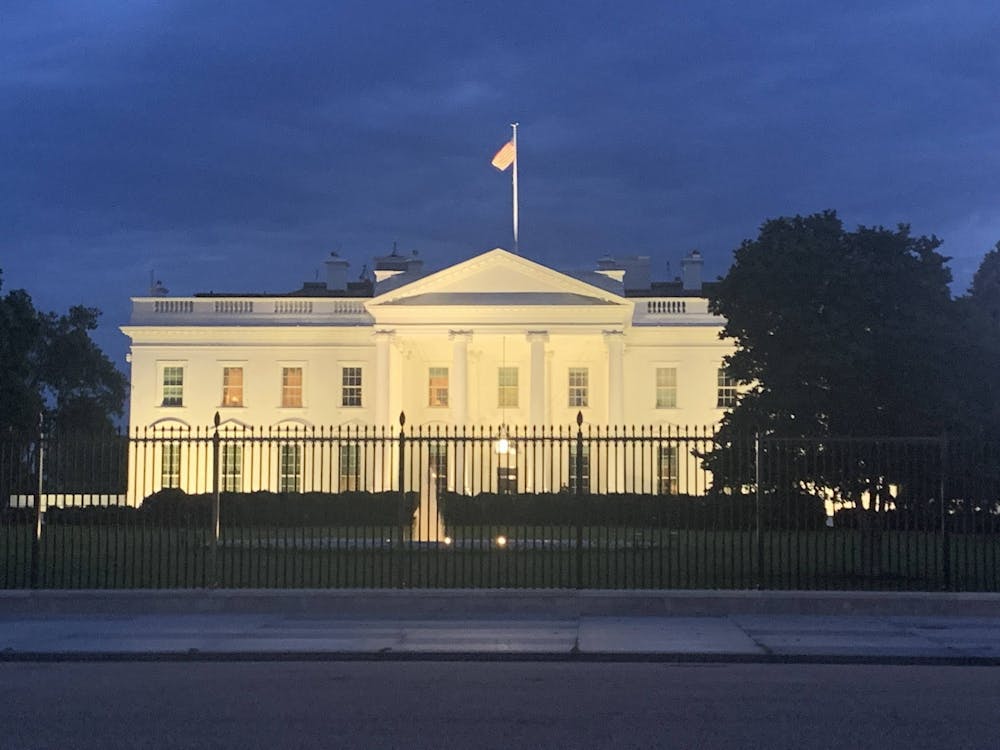On Aug. 24, President Joe Biden announced a plan to cancel up to $10,000 of student debt for many borrowers. The move was seen by some as a promise kept from Biden’s campaign for the White House and has stirred a national conversation about student debt, which affects more than 45 million Americans.
Princeton sociology professor Frederick Wherry, who has written extensively on the topic and runs an organization called Dignity & Debt, which helps develop financial services for low income households, commented on what impact the policy change may have for students at the University.
Compared to most colleges across the country, few Princetonians take out student loans to cover their costs on campus.
“If you're going to a really wealthy university like [Princeton] … you're probably going to be okay. You’re going to have some debt, but it is unlikely to be crushing debt,” Wherry said.
Since 2001, the University has ensured that financial aid packages include grants rather than loans. This means that the University has completely covered tuition, room, and board for any student whose family income is less than $65,000. A new University policy announced earlier this month will expand this full-aid policy to any student whose family income is less than $100,000, and will go into effect next fall.
Indeed, 83 percent of recent graduates graduated debt free. The average indebtedness at graduation of borrowers in the Class of 2021 was $10,300. Only three percent of University students take out federal student loans, far below the 31.8 percent students who take out loans nationally in a single year.
Despite the fact that few Princeton students own substantial personal student debt, the policy’s impact is already being felt on campus. Gabriel Robare ’24 told the ‘Prince’ of the significant impact his mother’s student debt had on their family’s financial decisions.
Robare is the Head Puzzles Editor for the ‘Prince.’

“It was never a thing that was consciously discussed, but it was always something that I was aware of,” he said. “It weaseled its way into conversation.”
His mother, Kym Persinger, is a public school teacher and, in an interview with the ‘Prince,’ described her student debt as a “dark shadow” that she has “been trying to get out from under” since graduating from college nearly 25 years ago.
According to Persinger, she was never able to make progress on her principal loans and was only able to keep paying the interest on her debt, despite taking on extra jobs and making lifestyle sacrifices.
Her experience is not an uncommon one, according to sociology and public affairs assistant professor Adam Goldstein.

“The debt doesn't really become real until after [the students] leave college,” Goldstein said. “And at that moment, it sort of forces a reckoning around sort of future plans.”
Robare described the day he learned of Biden’s loan forgiveness policy.
“I got my financial aid for Princeton [for this year] ... and we found that out the same day that my mom's loans were canceled,” he said. “It was a pretty great day.”
Persinger said that it was like a “fairy tale finally coming true.”
Among the incoming class, opinions on loan forgiveness are largely favorable.
The recent ‘Prince’ Frosh Survey of the Class of 2026, conducted in July, before Biden’s announcement, found that 60 percent of first-year students view proposals to cancel all student debt as “somewhat” or “strongly” favorable.
Beyond Princeton, Wherry said that the impact of Biden’s policy will lift a significant hindrance students face in earning a degree.
“If you're not in that top 10 percent of wealth, in terms of the university that you attend, your debt burdens are going to be much higher. And the lower the wealth, the higher the debt burden,” he said.
To Persinger, the removal of this burden is monumental.
“I am determined that both of my kids will graduate debt-free,” she said. “I never want them to feel this kind of burden that I have.”
Julian Hartman-Sigall is a news contributor for the ‘Prince.’ He can be reached at jh8991@princeton.edu or on Twitter at @Julian_h_s.








